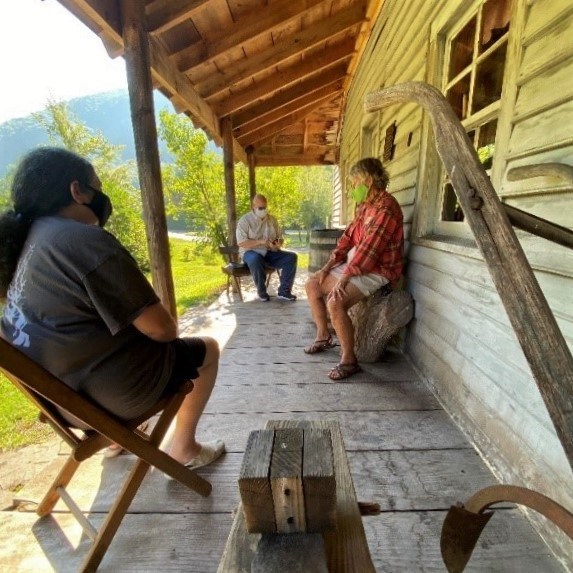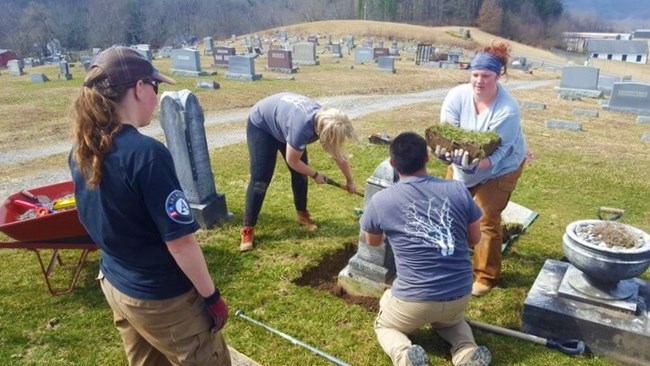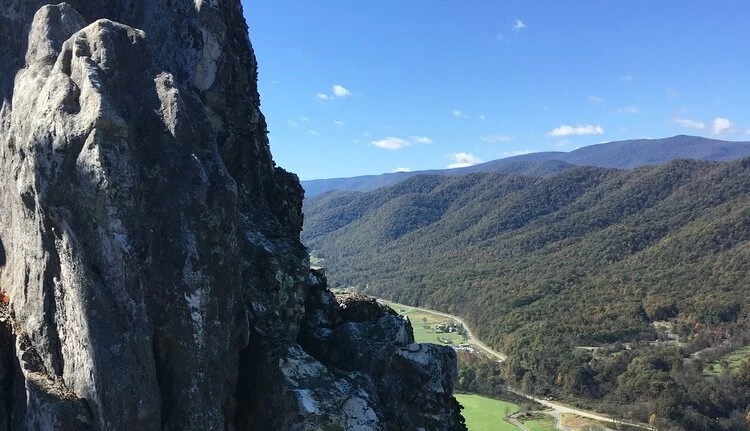Last updated: July 19, 2021
Article
Next Step for Appalachian Forest NHA Management Planning – The Planning Exchange Camp

Appalachian Forest NHA
On Monday, July 26, the management entity for the Appalachian Forest National Heritage Area (AFNHA) will bring together local citizens and heritage professionals for a Planning Exchange Camp. The event will serve as a forum for collaboration on ideas for the AFNHA Management Plan.
The Planning Exchange Camp takes place at the approximate midpoint in the two-year management planning process. Over the past year, the AFNHA leadership has been working diligently to develop effective planning solutions. The process allows for mapping out projects and programs that can be implemented over the next decade.
Every National Heritage Area, once designated, has three years to complete a management plan. This document is then submitted to the Secretary of Interior for approval. The Appalachian Forest NHA was authorized by Congress in March 2019, comprising 16 counties in West Virginia and two in Maryland. The AFNHA is expected to submit their management plan to the National Park Service in March 2022.
The Planning Exchange Camp takes place at the approximate midpoint in the two-year management planning process. Over the past year, the AFNHA leadership has been working diligently to develop effective planning solutions. The process allows for mapping out projects and programs that can be implemented over the next decade.
Every National Heritage Area, once designated, has three years to complete a management plan. This document is then submitted to the Secretary of Interior for approval. The Appalachian Forest NHA was authorized by Congress in March 2019, comprising 16 counties in West Virginia and two in Maryland. The AFNHA is expected to submit their management plan to the National Park Service in March 2022.

Appalachian Forest NHA
The management planning process provides an opportunity for the Heritage Area leaders to work directly with the National Park Service and the NPS Heritage Area coordinator in their region. The plan ultimately elaborates on a coherent regional story for the Heritage Area. The AFNHA hired a planning team, Point Heritage Development Consultants, to assist with historical research, developing a thematic structure and a public outreach process. Critical to any planning effort is input from the community with a diverse group of interests represented.
In early 2020, the management planning process took an unexpected turn for Appalachian Forest NHA when the pandemic changed nearly every facet of daily life. This included the intricate collaborative work of preservation planning that would typically involve travel, large ‘town hall’ meetings, and open house listening sessions throughout the region.

Appalachian Forest NHA
Lack of broadband connectivity in some parts of the Heritage Area, however, presented a challenge for reaching community members without Internet access. When safe, the AFNHA held outdoor, small, physically distanced meetings across the region last summer and fall. The upcoming Planning Exchange Camp on July 26th will mark a return to in-person public participation.
The AFNHA’s solutions last summer included holding smaller, “front porch meetings” across the Heritage Area in towns like Arthurdale, WV—the first New Deal-planned community in the nation. Collaborators convened on front lawns in the town of Rainelle, WV, and in the pouring rain with the Superintendent of Cass Scenic Railroad State Park on his front porch.
Heritage consultants also gathered safely last summer to work on management planning at a distanced, outdoor meeting at the historical Seneca Rocks Homestead. AFNHA leadership trekked across outdoor walking tours in West Virginia towns like Richwood and Lewisburg, and explored Maryland heritage area sites including an extensive driving tour of Garrett County.
“We are excited to be able to transition now from the idea-gathering phase to planning out more specific projects and programming,” says Baxter. AFNHA leadership is currently focused on having meetings this year that will allow for more underrepresented voices to be heard. This will include tribal nation representatives who were unable to connect virtually this past year, and who AFNHA met with this past June In addition, the AFNHA is identifying new local audiences who have yet to discover this nationally important Heritage Area in which they reside.
For more information, visit the AFNHA website or contact the AFNHA team at planning@afnha.org with questions on upcoming meetings.

Appalachian Forest NHA
